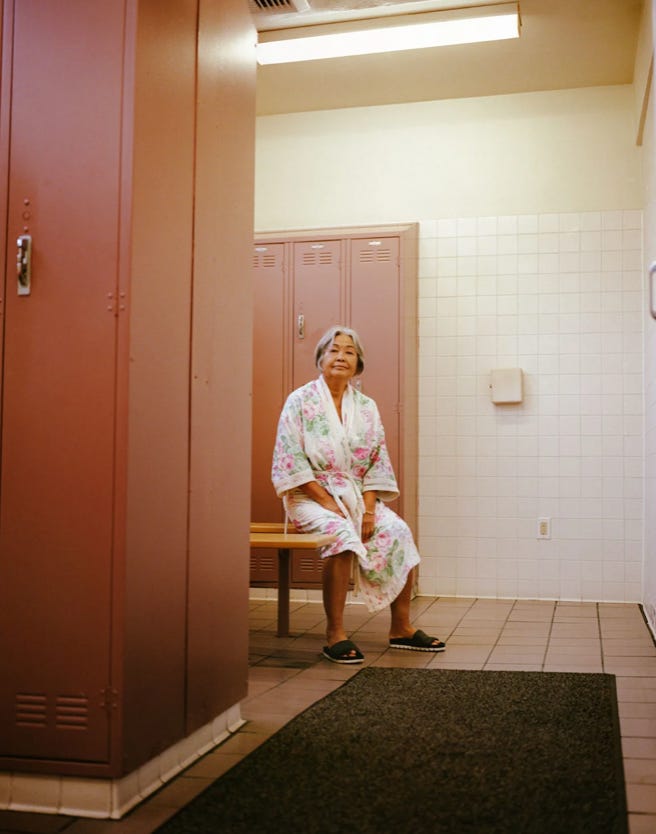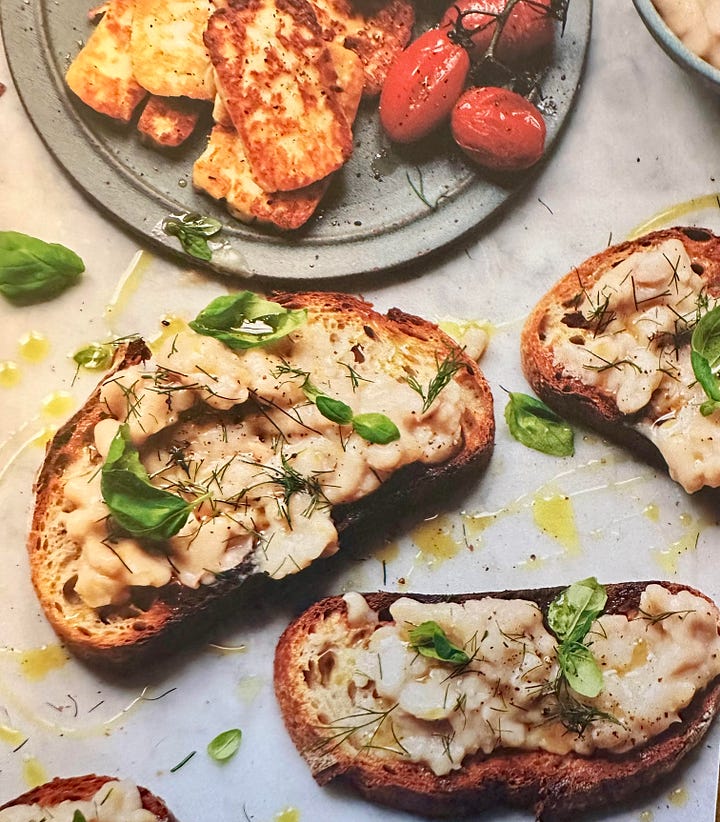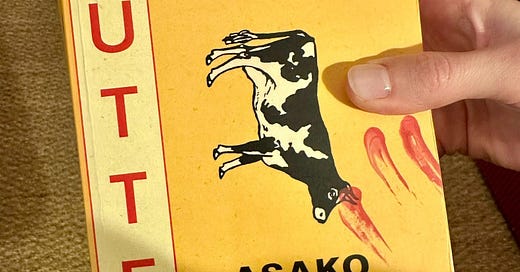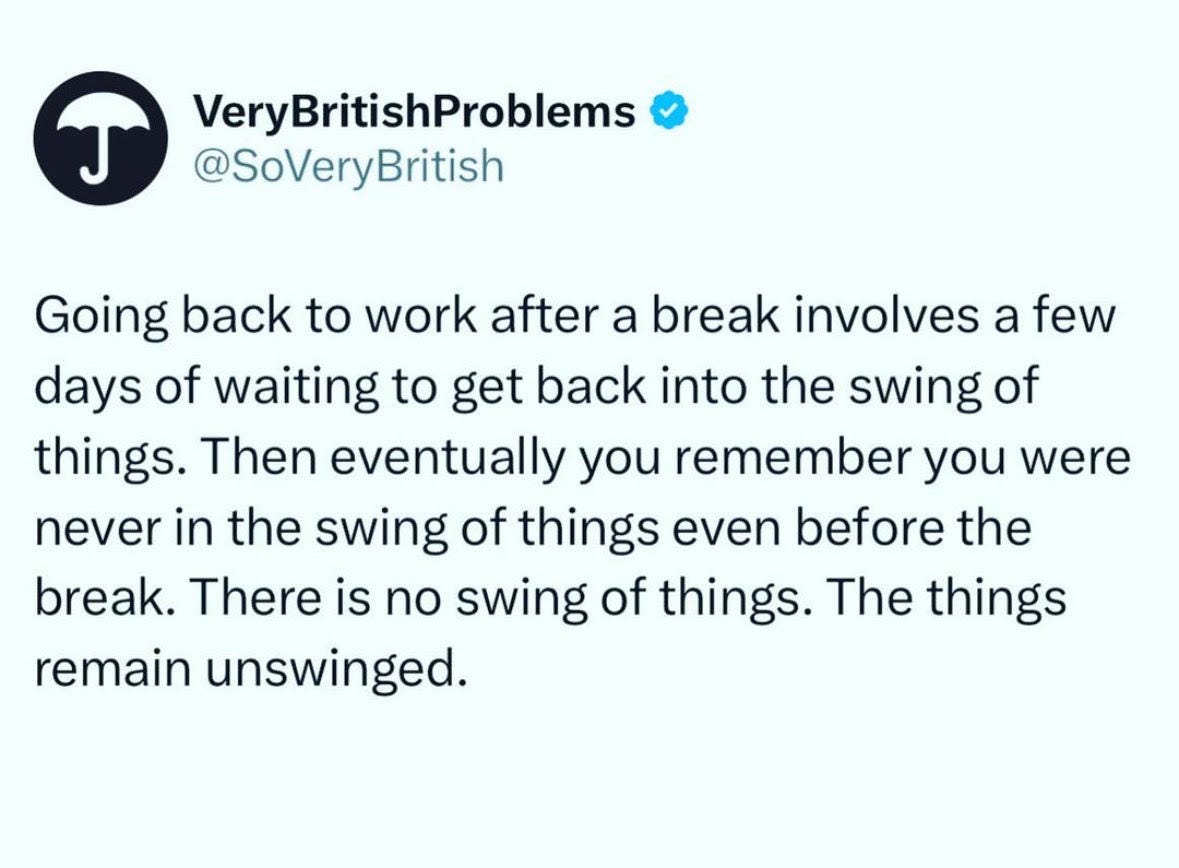A cult Japanese bestseller to pre-order now
Also: a beaut photo essay, the joy of beans and Welsh Tidy Mouse
Happy New Year! I hope that some of you, at least, are golden and rested, like a turkey that’s been in the oven for 24 hours. Kicking off today with a vital question: do any of you have any weird visual tics? Mine is that I think I see Elon Musk everywhere. Truly, everywhere. Not a day goes by when I don’t overwrite a bland, middle-age face with Elon Musk’s.
For the first edition of the year I want to talk about a delightfully weird book with an excellent cover, which I read a proof of over Christmas and which is coming out next month: Butter by Asako Yuzuki.
Translated into English by Polly Barton (who wrote her own non-fiction book last year called Porn: An Oral History), Butter was a cult best-seller in its native Japan. Inspired by a chilling true story of The Konkatsu Killer, it’s about a fine dining-obsessed alleged serial killer, Manako Kajii, and a journalist Rika Machida, who form an unlikely relationship when Rika visits her in jail for an interview.
As a way of bonding with Manako, Rika goes to the cooking school Manako attended and learns to cook her favourite recipes (which contain a lot of butter. The title is not abstract - there is tons of butter, tons of writing about butter and tons of writing about food, generally.) Butter is not just about Manako and Rika’s unsettling relationship - it’s also about Rika’s relationship with her best friend, Reiko, and Reiko’s seemingly perfect life (clue: all is not as it seems), Rika’s passionless relationship with her boyfriend and her desperation to become a female editor at her news organisation.
What is particularly fascinating about this book, for me, was not so much the story - weird and wonderful as it was - as the insight into Japanese culture. Despite being a fairly low-ranking journalist (she’s not even allowed to write her own stories - she reports her stories to an editor on the news desk who then writes them) Rika typically works until midnight, which reflects the fact that Japanese is the only language that has a specific word for working yourself for death: ‘karoshi’, which translates as “overwork death”.
Also interesting is how siloed these young Japanese professionals are. Rika has just one friend, Reiko. She cannot maintain a romantic relationship, because she has no time. She barely eats, because she has no time. She and her colleagues are consistently grey-faced, looking older than their years, clothes crumpled, sleeping at the office. She is not the exception, she is the norm.
Reiko, on the other hand, cooks nutritious meals and has a loving relationship - but she has given up work to achieve that. If we worry here about how to balance work and friendships and leisure time, then the characters in this book appear to have eschewed leisure, love and food entirely and embraced a mono-life: you can either work, or you can live. You cannot, the book is clear on this, do both - unless, like Keiko in Convenience Store Woman, you become a renegade.
The other fascinating insight is into the misogynistic attitudes towards female weight in Japan. To say that this book dwells on how much women weigh would be an under-statement. *If you have an ED or are recovering from an ED, this book may be too much*. There is constant commentary about how women who are anything other than thin have ostracised themselves from society. Manako is reviled not only because she is a serial killer, but because she is plump and seemingly obsessed with her own plumpness: “she was like a self-pollinating plant, in full bloom.” The news story around Manako is less that she apparently murdered 3 businessmen and more that no-one can understand how those men dated her in the first place. Meanwhile, once she reaches 9 stone, Rika is regarded as a social outcast.
I always find it an interesting project to consider how much I like the writing in a translated work, because I don’t know what Japanese fiction reads like in its native language. By that I mean: does this book read slightly strangely - a little cloying, cutesy, unsettling - in Japanese, or just when translated into English? For instance: “Reiko was smiling as she spoke, her lips glistening with sweet and sour sauce. In her white mohair sweater, she looked a bit like a rabbit.” It’s an eerie observation. Linguistically, there are parallels between Butter and Sayaka Murata’s hugely popular works, which suggests that this is a popular tone for contemporary Japanese literature.
Butter is a quirky, compelling, slightly-too-long book. (As is my theory on all books over 300 pages, it would have benefited from a quarter chop!) But not, perhaps, for anyone who hates butter.
BITS
I was moved by Heather Sten’s photo essay ‘Village Breeze’ about her mother, Thong, for WeTransfer’s mag (you can also read it online.) After a life-time of service - a single mother, a carer for her own mother, a full-time worker outside of the home - Thong is “finally free”. “At 77, she’s just like, ‘fuck everyone’”, says Sten. I loved these portraits of Thong going about her day - Tai Chai, gardening, enjoying her miniature cookware - shot by her daughter.


I love love loved this piece on age-gap relationships by Lila Shapiro for New York mag. My grandfather’s second wife was 30 years younger than him, so I’ve always been intrigued by ‘age-gappers’; what must it be like to grow up one, or even two generations younger than your spouse? Does a philosophical meeting of minds replace the need for common cultural reference points? (It’s not always, as this piece nicely explores, about money.) Shapiro charts the changing attitudes towards age-gaps (an initial review of Manhattan in The NY Times barely even mentions that Mariel Hemingway was 17 years old, while Isaac Davis was 42), neurological development and the evolution of terms like ‘cougar’. A great piece.
I am basically married to Vinted at this point and so I guzzled this deep-dive by my Unreal co-writer, Sirin Kale. Vinted is Lithuania’s first unicorn and has 16m users in the UK - that’s 1/4 of the population! It’s also unique for the fact it doesn’t charge seller fees and generates in-app postage labels. (That is not to say it’s faultless, as Sirin explores.) If you’re intrigued about the nuts and bolts behind the scenes (obviously!) then give it a read.
Geeky sidenote, because I know a lot of people are panicking about it: the HMRC’s ‘side hustle tax’ that just came in, only applies if you are making a profit from your goods (eg selling them for more than you bought them for) or selling non-personal items (buying things specifially to sell them). Not if you are selling off your own old clobber for a couple of quid. Use the HMRC simulator to find out if you will have to pay tax.
In this week’s animal news, I can’t get over the mousekeeper, aka Welsh Tidy Mouse, who tidies retired postman Rodney Holbrook’s shed, every night. “I don’t bother to tidy up now, I leave things out of the box and he puts it back in its place by the morning…. I think he would tidy my wife away if I left her in there.” Look at him go!
I really enjoyed this thoughtful interview with Michelle Keegan by Eva Wiseman, which I read before bingeing Harlan Coben’s new Netflix series, Fool Me Once, in which Keegan plays the titular role. I loved her comments on how soaps are the best training ground for any actor - the fast-paced shooting, the mountains of lines to learn, the ping-ponging between joy and grief. I think often about the fact that I used to watch Margot Robbie as Donna in Neighbours and Chris Hemsworth (all three Hemsworths, in fact) on Home & Away.
As for the show itself - I find Netflix’s whole Amerification of the UK quite weird (whilst understanding that that flattening is what sells it to a global audience) but I thought this was pretty good, especially the Black Mirror-style finale and Joanna Lumley as a creepy mother-in-law. If you’re Dry January-ing your way through the telly, this is a good shout.
I’ve been obsessed with quotes since I was a teenager and used to write down my favourites ones in a notebook (I still have the notebook. It’s lol.) My dad gave me Notes and Quotes by Jon Connell for Christmas, and here are a few of my faves:
“To be happy, we must not be too concerned with others” - Albert Camus
“They loved in triangles and lived in squares” - Dorothy Parker on the Bloomsbury Group
“You must come again when you have less time” - Walter Sickart to a departing guest
This meme made me laugh. The things really do remain unswinged. It’s like all my resolutions about finding balance - as if balance were a possibility. I might write something on that soon…
My husband gave me the Bold Bean cookbook for Christmas and it has so many good recipes. I’m trying to cook more veg/ pesc food and leave meat as a “treat” and this book really helps. (Yes! I am cooking these days! And yes! I am reading less!) My pet peeve with cookbooks is when they have ingredients that are almost impossible to get hold of unless you live near a specialist shop and these are not only easy to make but healthy, affordable and delish.


Speaking of accessible cooking, I am newly obsessed with What Willy Cook. He creates “recipes not stressipes”: crispy coconut prawn sandwich, beef wellington, sticky chicken with kimchi. What really makes it is the voiceover, though.
I went to Bubble Planet in Wembley during the festive perineum and if you’ve got small children and have visited every single museum 487 times, I definitely recommend it. My only caveat is that you are banned from jumping, which is the one thing you want to do when you see a pit full of balls.


Do you have any good cookbook reccs for me, now I’m living my based stove-based life? My best friend gave me The Hidden Hut for xmas, which reminds me of one of our favourite family spots, in Portscatho. Share your faves!








You’re probably all over them but I love Hetty Mckinnon’s cookbooks for delish meat-free recipes. They always seem to work!,
The What to Cook substack by Caroline Chambers is my favorite for easy weekly recipes!